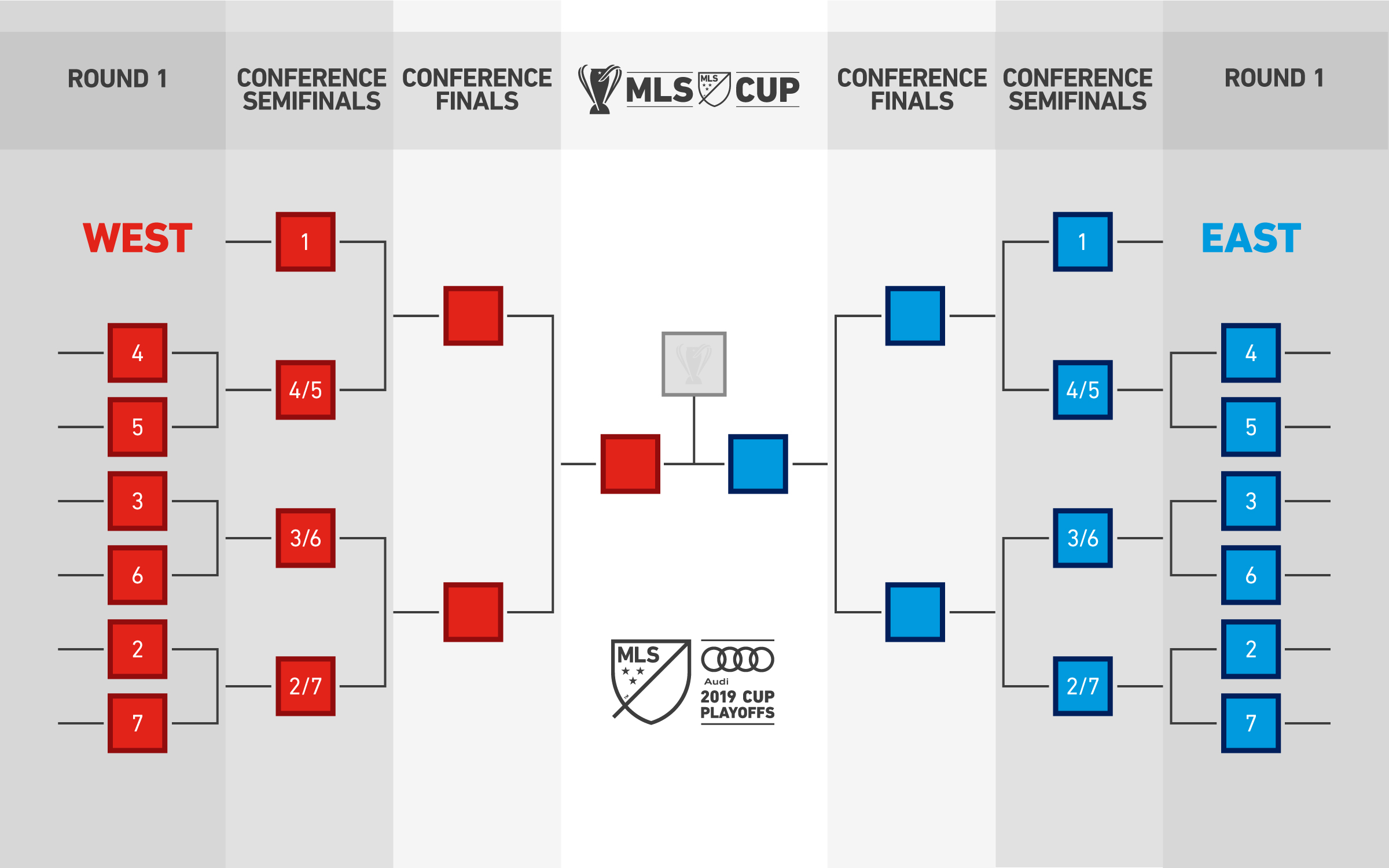Understanding The MLS Playoffs Bracket: A Comprehensive Guide

The Major League Soccer (MLS) playoffs are an exhilarating time for fans, players, and teams alike. As the regular season comes to a close, the anticipation builds as teams battle it out in a knockout format for the coveted MLS Cup. The playoffs are not just about showcasing talent; they embody the passion and spirit of American soccer. Understanding the MLS playoffs bracket is essential for fans wanting to follow their favorite teams on the road to championship glory.
The MLS playoffs bracket is a visual representation of the matchups that fans will experience during the postseason. This bracket outlines how teams will face off in each round, culminating in the final match that decides the league champion. With a growing fan base and increasing competitiveness, the playoffs have become one of the most exciting periods in American sports. But how exactly does the bracket work, and what should fans know to stay engaged throughout the playoffs?
In this article, we will explore the intricacies of the MLS playoffs bracket, including how the teams qualify, the format of the games, and key strategies that can influence outcomes. Whether you're a die-hard supporter or a casual viewer, understanding the dynamics of the playoffs will enhance your viewing experience and deepen your appreciation for the sport. So, let’s dive into the details of the MLS playoffs bracket!
What is the Structure of the MLS Playoffs Bracket?
The MLS playoffs bracket is designed to determine the league champion through a series of knockout matches. The structure is based on a combination of regular-season performance and playoff seeding, providing a competitive framework that rewards the best teams. Here’s a breakdown of how the bracket typically works:
- The top teams from each conference qualify for the playoffs based on their regular-season standings.
- Teams are seeded into the bracket, with higher seeds generally facing lower seeds in the early rounds.
- The playoffs consist of single-elimination matches, meaning that the losing team is eliminated, while the winner progresses to the next round.
- The two conference champions then face off in the MLS Cup final.
How Do Teams Qualify for the MLS Playoffs?
Qualification for the MLS playoffs is primarily determined by the teams’ performance throughout the regular season. Here’s how the process generally works:
What Are the Key Phases of the MLS Playoffs?
Understanding the key phases of the MLS playoffs is crucial for fans wanting to follow the action closely. The playoffs typically consist of the following stages:
Round One: The Knockout Stage
The first round of the playoffs is the knockout stage, where teams face off in single-elimination matches. The higher-seeded teams usually play at home, giving them a potential advantage.
Conference Semifinals
Winners from the knockout stage advance to the conference semifinals, where they continue to compete for the chance to represent their conference in the finals.
What Strategies Do Teams Use in the Playoffs?
Playoff soccer often differs from regular-season play, as teams adopt specific strategies to maximize their chances of success. Here are some key strategies:
- Defensive solidity: Teams prioritize defense to avoid conceding goals, especially in knockout matches.
- Midfield control: Dominating midfield allows teams to dictate the pace and flow of the game.
- Counter-attacking: Teams often rely on quick transitions to exploit defensive weaknesses.
Who Are the Top Contenders in the MLS Playoffs?
Each season, certain teams emerge as strong contenders for the MLS Cup. Historically successful franchises or clubs with star players often dominate discussions. Some of the top contenders include:
- LA Galaxy
- Seattle Sounders
- Atlanta United FC
- New York City FC
How Has the Format Changed Over the Years?
The format of the MLS playoffs has evolved since the league's inception. Initially featuring fewer teams and a different structure, the playoffs have undergone several changes to enhance competitiveness and fan engagement. Recent adjustments include:
- Increased playoff spots to accommodate more teams.
- Introduction of the single-elimination format to heighten drama and excitement.
- Changes in seeding rules to better reward regular-season performance.
What Are the Most Memorable Moments in MLS Playoff History?
Throughout its history, the MLS playoffs have produced unforgettable moments that have etched themselves in the minds of fans. Some of these moments include:
- The stunning upset of a lower seed defeating a higher seed.
- Last-minute goals that changed the course of a match.
- Iconic performances from star players that led their teams to victory.
How Can Fans Stay Engaged During the MLS Playoffs?
For fans wanting to stay engaged during the playoffs, there are several ways to enhance the experience:
- Follow the matches live through various broadcasting platforms.
- Engage with fellow fans on social media and fan forums.
- Attend matches to experience the excitement in person.
Conclusion: The Thrill of the MLS Playoffs Bracket
In conclusion, the MLS playoffs bracket is a thrilling journey that encapsulates the essence of competition in American soccer. With high stakes, passionate fans, and the potential for dramatic upsets, the playoffs are a time when anything can happen. Understanding the bracket, the strategies at play, and the historical context enriches the viewing experience for fans and fosters a deeper appreciation for the sport. As the next playoffs approach, embrace the excitement and prepare for another unforgettable chapter in the history of Major League Soccer!
ncG1vNJzZmivp6x7o77EnKKepJxjwqx71aKpmqSmnq%2Bmv5RopKWrXaW5osXOn52sZZKnrqS3xK1loaydoQ%3D%3D
